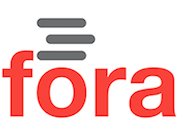Fog Computing Security
- Important: don’t forget to mention in your application how you found out about the position.
Host: Technical University of Denmark (DTU), Embedded Systems Engineering (ESE) section.
- Main supervisor: Associate Prof. Nicola Dragoni, ndra@dtu.dk (contact person)
Requirements:
- Mandatory requirements for all PhD positions
- Master’s in Computer Science or equivalent
- Knowledge of security in distributed systems; background in networking and network security is a plus
- Experience with software development
- Demonstrated ability to write technical reports on security-related topics; scientific publications are a plus
Objectives:
- Analyze the security threats of the Fog Computing infrastructure for Industry 4.0 using use cases from the industrial partners.
- Develop a security framework that takes advantage of the Fog Nodes (FNs) and Time-Sensitive Networking (TSN) as security-enabling devices for the system.
Expected Results:
- Elicitation and definition of attacker models and attack scenarios for industrial automation when using Fog Computing.
- Propose security services that can be offered by Fog Nodes to mitigate the identified security threats, without jeopardizing the operations and safety of the industrial applications.
- Develop and implement selected security services in the FNs, showcasing online reconfiguration methods to prevent and recover from attacks.
- Design and implement algorithms for anomaly detection, which use of the available access to data streams to detect attacks.
Planned visits and collaboration:
- DANFOSS (Dr. Theis Solberg Hjorth): Define the attacker models in cooperation with DANFOSS
- SYSGO (Dr. Sergey Tverdyshev): Integrate the security services with SYSGO’s solutions.
Description:
The PhD aims at targeting two basic research questions:
- How can we secure industrial systems with a Fog Computing based architecture?
- Can Fog Computing represent a solution to the risks in security and privacy related to the intersection between Cloud Computing and Industrial IoT?
In other words, the PhD will look at Fog Computing from two different security perspectives: (1) considering Fog Computing as a new distributed computing paradigm for Industrial Systems that needs to be secure and (2) looking at Fog Computing as a security solution to enable Cloud services for Industry 4.0.
Relevant publications:
I. Stojmenovic and S. Wen. The Fog Computing Paradigm: Scenarios and Security Issues. In Proceedings of the 2014 Federated Conference on Computer Science and Information Systems, DOI: 10.15439/2014F503, 2014, IEEE [PDF].
S. Yi, Z. Qin and Q. Li. Security and Privacy Issues of Fog Computing: A Survey. In Proceedings of the 10th International Conference on Wireless Algorithms, Systems, and Applications (WASA), 2015, LNCS [PDF].
